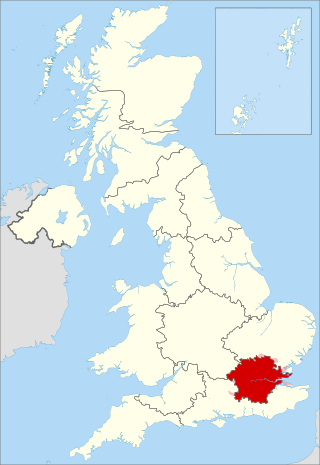Related Research Articles

ITV1 is a British free-to-air public broadcast television channel owned and operated by the British media company ITV plc. It provides the Channel 3 public broadcast service across all of the United Kingdom except for the central and northern areas of Scotland where STV provides the service.

London Weekend Television (LWT) was the ITV network franchise holder for Greater London and the Home Counties at weekends, broadcasting from Fridays at 5.15 pm to Monday mornings at 6:00. From 1968 until 1992, when LWT's weekday counterpart was Thames Television, there was an on-screen handover to LWT on Friday nights. From 1993 to 2002, when LWT's weekday counterpart was Carlton Television, the transfer usually occurred invisibly during a commercial break, for Carlton and LWT shared studio and transmission facilities.

ITV Yorkshire, previously known as Yorkshire Television and commonly referred to as just YTV, is the British television service provided by ITV Broadcasting Limited for the Yorkshire franchise area on the ITV network. Until 1974, this was primarily the historic county of Yorkshire and parts of neighbouring counties served by the Emley Moor transmitter. Following a reorganisation in 1974 the transmission area was extended to include Lincolnshire, northwestern Norfolk and parts of Derbyshire and Nottinghamshire, served by the Belmont transmitter.
Bill Steel is a broadcaster and actor from North East England, best known for his work at Tyne Tees Television and Metro Radio.
David Allan is an English broadcaster and journalist, best known for his work as a television continuity announcer and radio presenter.
Peter Marshall is a British broadcaster. He was educated at St. Columb's College in Derry.

Redvers Buller Kyle was a South African-born British broadcaster, voice over artist, actor and composer, best known for his work on the ITV network in the United Kingdom over forty years.
Night Network, Night Time and Night Shift were names given to the overnight schedule of the ITV network in the United Kingdom. The first ITV company began 24-hour broadcasting in 1986, with all of the companies broadcasting through the night by the end of 1988. At first, individual companies created their own services, however before too long, many of the smaller ITV stations began simulcasting or networking services from others.
Roger Tilling is a British voice-over artist, and broadcaster.
Robert "Bob" Preedy is a broadcaster, a book author and was formerly a presenter on BBC Radio York and the chief continuity announcer for Yorkshire Television.
Colin Weston, is an English broadcaster, best known for his work at Granada Television and Tyne Tees Television.
Tracey Crawford is a former British television continuity announcer and radio presenter.
In the United Kingdom, continuity announcers are people who are employed to introduce programmes on radio and television networks, to promote forthcoming programmes on the station, to cross-promote programmes on the broadcaster's other stations where applicable and, sometimes, to provide information relating to the programme just broadcast.
Paul Kaye was a British radio broadcaster from Barnstaple in North Devon.
Earl Richmond, was a broadcaster born in Highgate, London in 1928, he died in May 2001.
Keith Martin is a British disc jockey and broadcaster born in Sandwich, Kent, known for his involvement in UK pirate radio from its earliest days and extensive work as a TV continuity announcer.
In broadcasting, continuity or presentation is announcements, messages and graphics played by the broadcaster between specific programmes. It typically includes programme schedules, announcement of the programme immediately following and trailers or descriptions of forthcoming programmes. Continuity can be spoken by an announcer or displayed in text over graphics. On television continuity generally coincides with a display of the broadcaster's logo or ident. Advertisements are generally not considered part of continuity because they are advertising another company.

The Television Centre, Newcastle upon Tyne, also known by the street name City Road, was home and headquarters of the ITV contractor for the North East region, Tyne Tees Television, between 1959 and 2005.

Robin Houston is a British voiceover artist and former announcer, radio and television newsreader and quiz show host. After starting his career as an announcer and stage manager, he became one of the pioneers of commercial radio in the United Kingdom. He went on to read the news on television for 15 years and to become one of the most well known announcers in television entertainment. For many years he was a host of television quiz shows, and is now a veteran voiceover artist with over 50 years' experience in the field.